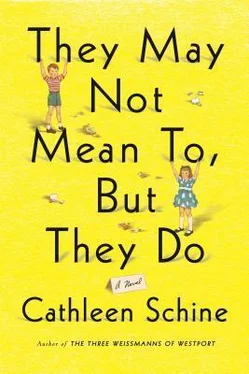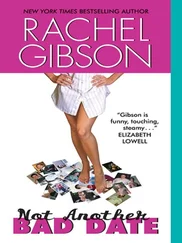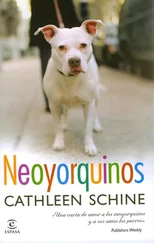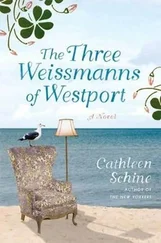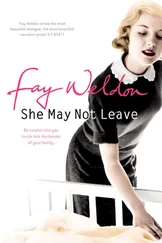“She could be on Broadway. Les Mis! ”
“Exactly. And I do prefer male cantors, generally.”
“Mommy, that’s sexist.”
“Nevertheless.”
They walked around the block to their building. They passed the corner market with its sparkling new pane of glass. Ruby held her breath the way she did when she passed a cemetery.
“Manuel’s insurance paid for it,” Coco said. “That was a relief.”
“Can I have my allowance back?”
“No.”
“Mommy,” Ruby said as they reached their building, “we need to get another set of dishes.”
“I love our dishes. Daddy and I got them on our honeymoon in Italy. They have a few chips, but really, Ruby, why would we want a whole new set, you can be a little extravagant, that’s from your father’s side of the family…”
“You really don’t understand anything,” Ruby murmured as her mother went on and on. She patted Coco’s arm with fond pity. “May god forgive you.”
* * *
Ruby sat on the floor of her grandparents’ living room, her legs stretched under the coffee table. She had spread out the photographs of her ancestors in approximation of her family tree.
“Now she wants to keep kosher,” she heard her father say. “With two sets of dishes. I’m all for the bat mitzvah, I’m proud of her, a sudden change of heart, but kosher?”
“I don’t think Tom Sawyer kept kosher,” Grandma Joy said. “How does she even know about keeping two sets of dishes?”
“The Internet. Google. Wikipedia.”
“Aren’t there parental controls on those things?”
There was a picture of Grandpa Aaron as a young soldier in the decorative box. Ruby showed it to Cora, who sat on the couch behind her, kicking her gently.
“Dad didn’t say anything when I was in there with him,” her father was saying.
“Nothing. For days. Almost a week.”
There was the muffled sound of weeping. Ruby turned the photos over, facedown, as if they were playing cards, moved them around the table, then guessed which was which, turning them faceup one by one. Cora slid off the couch and cuddled beside her. Ruby felt her breath on her cheek.
“Quit it,” she said mildly, and the shove she gave Cora was mild too.
Their mother appeared in the doorway.
“Girls, we’re going. I think you should say goodbye to Grandpa.”
Ruby and Cora held hands. With the big bed pushed against the wall to make room for a hospital bed, their grandparents’ room looked off balance, cluttered, a showroom for things no one wanted to see. The blinds were old venetian blinds, pulled down, a few of the metal slats bent, allowing in shafts of winter light. The bathroom door was open, and a big white booster seat rose up from the toilet. Pajamas hung from a hook on the back of the door, threadbare and limp.
“Do you know a prayer or something?” Cora whispered.
Ruby shook her head. “Not a whole one. Not yet.”
Their grandfather’s nose was bigger and thinner than ever. It rose up monumentally from his sunken cheeks. His eyes were closed. His lips were almost white and gave a small puff with each breath.
“Grandpa,” Ruby said, because she was the older. “Grandpa, it’s us, Ruby and Cora.”
He did not stir. There were brown bottles of pills and twisted tubes of ointment on a flowered porcelain tray on the dresser. There was a fat roll of gauze and one of white tape, some baby powder, a box of rubber gloves. Cora took out a rubber glove and blew it up like a balloon.
“Udders,” she said, handing it to Ruby to tie. They both giggled, then stopped and shifted their feet.
“We have to leave, Grandpa,” said Ruby softly.
Cora poked him. “Grandpa!” she yelled.
“Cora!” Ruby whispered. “Shhh.”
“Well, what if he’s…”
“Don’t be silly. He’s asleep. Look at his mouth. Listen.”
They could hear him breathing.
“Grandpa, we’re here, we’re here,” Cora said. She rattled the aluminum bed rail. “Me and Ruby.”
“Ruby and I,” Grandpa said. He opened his eyes.
“Everyone, everyone! Come quick! Grandpa talked!” Cora pounded down the hall.
Joy rushed to his side. “What is it, sweetheart? What is it, my darling?”
“Chipped beef,” Aaron said.
“You’re kidding me, Aaron. Aaron, darling…”
“In a jar.” And he slipped back into silence.
* * *
It was three in the morning. Joy went into the bedroom. Aaron had not moved. He was asleep on his back, the covers pulled up to his chin. The only sound he made was a rhythmic quiet groaning.
Walter, who had been in the next room on the pullout bed that would not pull out, appeared at the door.
“Okay?” he said.
She nodded. “Go back to sleep.”
There was a kitchen chair beside the hospital bed, and Joy sat down on it. She reached beneath the blanket and found Aaron’s hand. His hand was cold. “There, there,” she said. A useless, irrelevant comment. “There, there,” she said again. Not every comment had to be useful or relevant. Some words were useless, irrelevant, words that meant I’m sorry, I’m so sorry, I wish I could help you, I love you and I have for so many years that I even love you when I don’t; words that meant I didn’t mean it when I said I was going to put a bag over your head if you asked me one more time where your ice cream was when it was right in front of you. “There, there,” she said.
Aaron, eyes still closed, opened his mouth, and through his strained breathing, he said, “There, there,” too.
When Joy called Molly and said, “It’s your father,” Molly thought, My father is dead. It was a strangely distant thought, as if it couldn’t be true.
“Daddy’s dead,” Molly said.
“Molly! How can you say that about your own father?”
Daddy was not dead. Daddy was about to start palliative care.
“He’s in so much pain,” Joy said. “And we can’t get him to the doctor’s anymore. He’s too weak. So now the doctor comes here. Nurses come, too. It’s a very good service. Your father is thrilled.”
Daniel went to grocery stores all over the city to no avail. He finally tracked down some chipped beef, online. It was frozen, not in a jar, but he ordered a package anyway. Aaron had first eaten creamed chipped beef on toast in the army. They called it Shit on a Shingle. It was one of his favorite dishes. But when the frozen chipped beef arrived from Wisconsin, next day mail, no one prepared it, and no one ever would. His father was dying. He had been dying for a long time, but now he was actively, earnestly dying. Daniel could see it. Aaron’s skin was the skin of the dying. His eyes had clouded like the eyes of a fishmonger’s fish. He was cold to the touch. He never moved except to raise a hand a few inches from the white blanket, then let it fall back.
“I know what palliative care means,” Molly said to Freddie.
“I hope it means he’ll be more comfortable.”
“It’s a euphemism for hospice care.”
“Hospice care is its own euphemism.”
“It means they can’t do anything else for him.”
“But you’ve been saying that for a month.”
“But they never said it. Now it means they won’t even try to help him.”
Freddie put her arms around her and said nothing, another thing Molly loved about her: she said nothing when there was nothing to say.
But within a week, Aaron had gone from palliative care to hospice care. It was snowing in New York when she and Freddie arrived on a red-eye and the dawn didn’t really happen; the horizon was too leaden. The ride into town was excruciatingly slow. The sight of the skyline, so grand after the long drab strip of funeral homes in Queens, shocked Molly as it always did, though the buildings were faint, veiled, soft in the storm. Freddie paid the driver and Molly hauled their suitcases across the sidewalk, the wheels leaving tracks in the snow like sleds. She thought back to the snow of childhood, the white hillside Upstate, the wooden sled with red metal runners they waxed with soap, her father seating himself on the sled, then arranging her and all her winter bulk in front of him, the rush of air on her face, the snow whispering beneath the runners, her father’s arms around her, his snowy beard against her cheek as he lifted her off the sled, his enormous glove closing around her mitten as he led her and the sled back up the hill. Oh, she was crying now, yes she was, sobbing as the snow landed on her cheeks and her nose, the tears hot, each one identical in the way snowflakes could never be. She was sobbing as she hauled the suitcases through the front door past the doorman, who offered to help and whom she shook off with a quick head motion. The elevator shuddered with her sobs, the melted snow pooled at her feet, her suitcase fell on its side and lay forlornly on the wet floor. Molly kicked it. Freddie kicked it, too, in solidarity, then righted it.
Читать дальше
